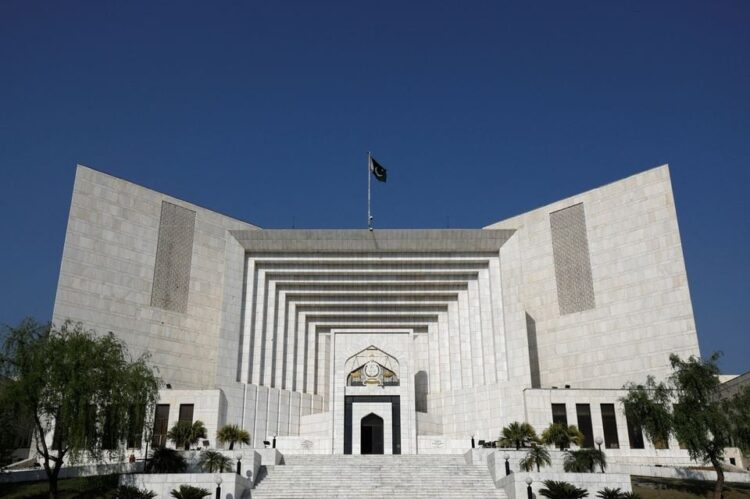The proposal to deal with the constitutional issues is not a recent issue. It was incorporated in The Charter of Democracy 2006 signed by former prime ministers Benazir Bhutto and Nawaz Sharif.
Article 4 of proposed amendment states, “A Federal Constitutional Court will be set up to resolve constitutional issues, giving equal representation to each of the federating units, whose members may be judges or persons qualified to be judges of the Supreme Court, constituted for a six-year period. The Supreme and High Courts will hear regular civil and criminal cases. The appointment of judges shall be made in the same manner as for judges of higher judiciary.”
Hezbollah chief warns Israel of ‘just punishment’ after Lebanon explosions
PTI MNAs declared as SIC members in new party position
EU employees protest against bloc’s ‘inaction policy’ on Gaza
Israel unleashes heavy strikes on Lebanon as US, UK urge restraint
For more such opinions & blogs, click here.
The proposed amendment needs to be seen in current polarization of institutions & the civil society. The favors awarded to a political party with decisions based on partisanship, in particular, the judgement by the Supreme Court on July 11, 2024, intensified the situation, sending shockwaves across the country. The decision, which granted rights to a party not even part of the case, has been unprecedented, deepening the sense of instability.
Whereas the courts must be free as media should be free & there must be separation of powers of judiciary & executive. This theory is based on a presumption that all institutions will work without partisanship. However, the Supreme Court, as the different segments of society are deeply divided. Does then, freedom to work independently translate into freedom to work independently exercising their partisanship?
Death anniversary of Mir Taqi Mir observed
PCB issues revised schedule for test series b/w Pakistan, England
12 Khwarij terrorists killed in encounters with security forces: ISPR
Pakistan elected as Member of IAEA’s Board of Governors
In a democratic order, no one should be above law. Decisions must be made on basis of law not popularity. Few sentences have been quoted more often than the aphorism: “Justice must not only be done, but must also be seen to be done”. This dictum was laid down by Lord Hewart, the then Lord Chief Justice of England in the case of Rex v. Sussex Justices, [1924] 1 KB 256.
Laws are needed in changing kaleidoscope of political and societal variation. All need to be equal before the law, unfortunately it seems some are more equal than others.
For more such opinions & blogs, click here.
Chinese firm to set up textile parks in Pakistan
Indian SC takes suo motu cognizance after Karnataka judge calls Bengaluru locality ‘Pakistan’
Indian Supreme Court’s YouTube channel hacked
India using anti-money laundering laws to harass NGOs: Amnesty
Another century for Travis Head as Australia outplay England in first ODI
The writer is a lawyer, academic and political analyst. She has authored a book titled ‘A Comparative Analysis of Media & Media Laws in Pakistan.’ She can be contacted at: yasmeenali62@gmail.com and tweets at @yasmeen_9
Stay tuned to Baaghi TV for more. Download our app for the latest news, updates & interesting content!






